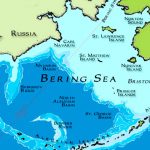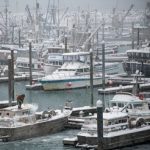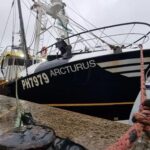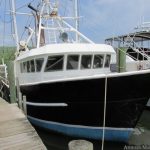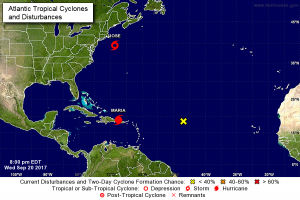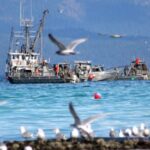Tag Archives: Patrice McCarron
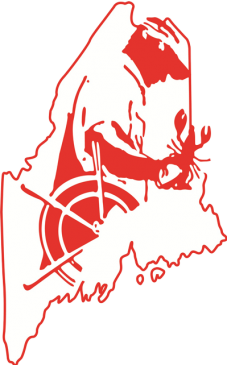
MLA Withdraws from TRT April 2019 Agreement Due to “serious data flaws”
On August 30, the Maine Lobstermen’s Association (MLA) sent a letter to Chris Oliver, head of NOAA Fisheries, withdrawing support for the April 2019 Take Reduction Team (TRT) agreement due to serious flaws in the data presented to the TRT and in the agreement process. The TRT agreement calls for Maine lobstermen to reduce its risk to right whales by 60%. “Following the TRT meeting, MLA undertook a careful review of data available from NMFS, due to unresolved concerns with the timeliness and accuracy of information provided to TRT members,” said Patrice McCarron, MLA executive director. >click to read< 08:34
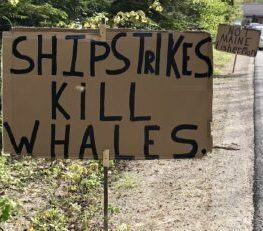
Lobstermen, environmentalists weigh in on right whale rules
Some of the largest and most powerful animal and environmental groups – including the Pew Charitable Trust, the U.S. Humane Society, the Conservation Law Foundation and Oceana – sent representatives to the hearing. They urged National Marine Fisheries Service to take immediate action to protect the whale, including proposals that even the team tasked by the fisheries service to come up with its whale protection plan had dismissed, such as offshore closures and ropeless lobster fishing. >click to read< 20:58
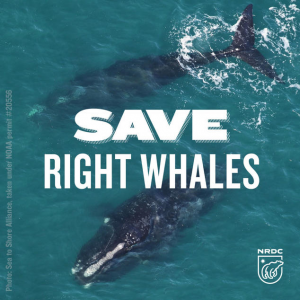
Are the ENGO’s pushing propaganda to pressure your Representatives and sway the public against you?
From the article: What evidence is there that Maine contributes towards right whale entanglement? The Maine congressional delegation has also suggested that the state’s fisheries do not contribute to right whale entanglements. Yet, Maine has almost three million licensed traps and logic dictates the high density of vertical lines associated with those traps poses a significant risk of entanglement. An encounter between a whale and even a single vertical line can result in a deadly entanglement. >click to read< Who supports these ENGO’s, anyway!
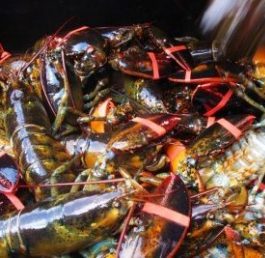
Slow lobster season so far in Maine, but price is steady
It’s been a slow lobster season so far in Maine, but the lack of crustaceans isn’t translating into high prices for consumers, and fishermen are still hopeful for a bump in catch this summer.,,, The season so far is similar to the lobster hauls veteran fishermen saw in the 1980s and 1990s, when the boom in catch typically came later, said Steve Train, a lobsterman based in Long Island. It’s frustrating for those who are used to the big, early catches of the modern era, he said. >click to read< 15:11

Mills’ stand on fishing rules praised by lobster industry
As Executive Director of the Maine Lobstermen’s Association (MLA), I applaud Gov. Mills’ July 11 Message to Maine’s Lobster Industry acknowledging the federal government’s “disturbing lack of evidence connecting the Maine lobster industry to recent right whale deaths.”,,, What is often lost in this debate is that the population of North Atlantic right whales was only 295 in 1997 when federal regulators first required U.S. fishermen to implement conservation measures. In the ensuing years, the right whale population increased to more than 450 whales. >click to read< 11:17
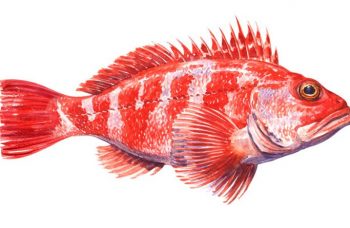
Canadian company wins approval for new lobster bait fish
The blackbelly rosefish is an abundant species that ranges from Canada to South America. Cooke Aquaculture, a New Brunswick, Canada-based company, requested Maine’s approval to sell rosefish as bait, and the company announced plans to harvest the fish off Uruguay. “We believe this is a solution to address concerns from the lobster fishery on the challenges they are currently facing on account of bait shortages,” said Glenn Cooke, chief executive officer of Cooke Inc., which includes Cooke Aquaculture.>click to read< 22:22
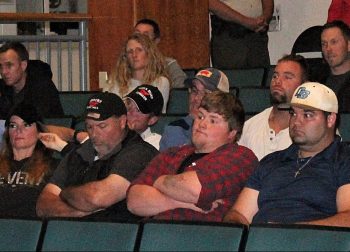
Lobstermen fed up, facing drastic rules to protect whales, say president should help
More than 100 fishermen attended a meeting with Maine Department of Marine Resources Commissioner Patrick Keliher June 20 at Camden Hills Regional High School. Lobstermen said they have already changed to weaker, breakable lines and sinking line in an effort to pacify government regulator’s who say the whales can become entangled in the ropes and die. “The end game is to have us not fish,” one lobsterman said at the meeting. >click to read<10:00

Maine lobster fishery agrees to deep cuts to protect whales
After a long and difficult week in late April in which the National Oceanographic and Atmospheric Administration’s Marine Mammal Take Reduction Team met to address protections for the endangered right whale, the Maine lobster fishery now has a sense of what the future holds. There were some hard battles along the way, in which we lobster industry advocates fought to ensure a viable Maine fishery, both for today’s lobstermen and for future generations. By Patrice McCarron >click to read<14:39
Competing interests – “The farmer and the cowman should be friends,” according to Richard Rodgers’ lyrics in “Oklahoma!” Can a similar peace pact be visited upon Maine’s lobstermen and the advocates of whale safety? >click to read<

Halving the number of vertical lines – Finding consensus on whale protections a tough call in Maine
Federal regulators have given Maine’s lobster industry its marching orders: Find a way to cut the number of surface-to-seabed fishing lines by 50 percent to help prevent the injury or death of even one of the endangered right whales that pass through the Gulf of Maine. The National Marine Fisheries Service is allowing each lobstering state to develop its own plan to protect the whale, whose numbers have fallen to a little more than 400 in recent years. But it will be hard to find one way to make it work in Maine, where the $485 million-a-year fishery is known for its diversity. >click to read<07:29
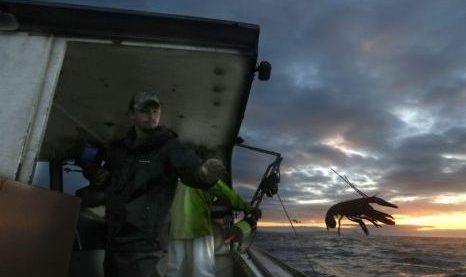
Maine Lobstermen Face 50 percent Trap-Rope Reduction To Protect Right Whales
Representatives from 14 Atlantic coast states participated in the four-day consensus-building project, including fishermen scientists, state regulators and conservation groups. The stakes were highest for Maine’s lobster industry, which landed $484 million worth of the crustaceans last year – the most valuable single-species fishery in the nation. The Cape Cod Times reports that Massachusetts and New Hampshire agreed to a 30% cut in the number of vertical lines, and to use ropes that break at a reduced weight. “The regulations proposed here today are a big ask,” says Patrick Keliher, the commissioner of Maine’s Department of Marine Resources. >click to read<13:06
NOAA – Team Reaches Nearly Unanimous Consensus on Right Whale Survival Measures ->click to read<15:50
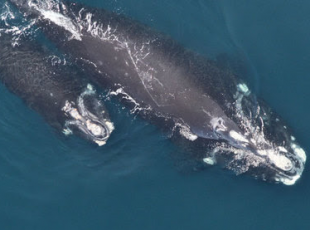
North Atlantic Right Whale – New restrictions placed on New England fishing industry to protect whales
Fishermen across New England are facing new restrictions after a panel of experts convened by the federal government agreed on Friday to a plan to step up protection of the endangered North Atlantic right whale. The group of federal and state officials, scientists, fishermen and environmental advocates created by the National Oceanic and Atmospheric Administration capped a four-day meeting in Providence by reaching consensus on a plan that aims to reduce entanglements in fishing gear, which is the leading cause of injuries to the whale and deaths. >click to read<18:20
New England Stakeholders Agree On Recommendations For Reducing Risk Of Right Whale Entanglements – >click to read<11:16
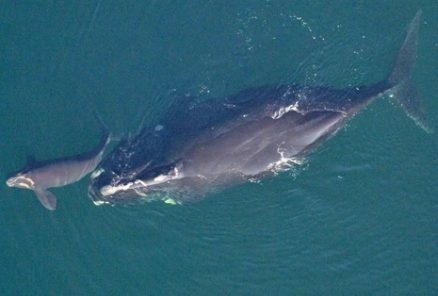
Regulators unveil new tool designed to help reduce right whale entanglements
Federal fisheries regulators demonstrated a new risk-assessment tool on Tuesday aimed at helping the survival of the North Atlantic right whale. It comes on the eve of regulatory decisions that could affect the fate of the endangered species — and the lobster industry, as well. Federal scientists said the new data model should help lobstermen and conservationists make collaborative decisions about reducing dangers that fishing gear poses for the endangered. >click to read<12:49

Impending whale protections worry fishermen
With the majority of American lobsters caught in Maine, the state’s lobster fishermen could bear the brunt of changes in federal fishery regulations to save the endangered right whale. At the March 1 Fisherman’s Forum update on the threat of extinction for the North Atlantic right whale, it became clear regulators believe changes to fishing gear will be announced sometime this year. Right whale presentation – National Oceanic and Atmospheric Administration official Mike Asaro explained that most of the remaining 450 North Atlantic right whales are male, with a population of about 100 females,,,. >click to read<16:17
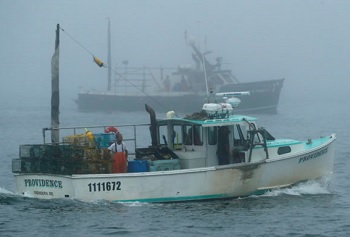
Despite a banner year, looming bait crisis leaves plenty of Maine lobstermen anxious
Patrice McCarron, executive director of the Maine Lobstermen’s Association, is worried about the severity of herring restrictions imposed by the federal government after the species failed to reproduce in sustainable numbers last year. “It’s about as bad as we can imagine, but we don’t yet know what it’s going to translate to for the fishermen,” McCarron said. McCarron said that Maine fishermen face a shortage of some 50 million pounds of bait in the coming season. “We’re seeing an 84 percent reduction in that particular source of bait, so we’ll have less than 5,000 metric tons, which will probably be caught in a week, in one week,” she said.>click to read<12:04
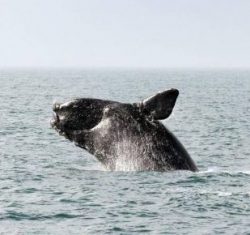
Atlantic Lobster Board Moves Toward Reducing Rope In Effort To Save Right Whales
A consortium of Atlantic states fisheries managers is calling for broad changes to the gear lobstermen use, in an effort to reduce risks posed to the endangered North Atlantic right whale and to ward off potential federal action that could be even more challenging for the industry. At a meeting of the Atlantic States Marine Fisheries Council in Virginia, its lobster board voted unanimously to set in motion the process that could lead to major changes in the East Coast’s lobster industry. >click to read<12:43

Whale rule changes coming on two tracks
Maine lobstermen and their representatives, along with state fisheries regulators, continue in the trenches of debates about how much the Maine lobster fishery is implicated in the decline of the North Atlantic right whale. Ongoing efforts to protect the whales from entanglement with fishing gear may result in two different new sets of regulations, Sarah Cotnoir, resource coordinator for the Maine Department of Marine Resources, and Patrice McCarron, executive director of the Maine Lobstermen’s Association, told the Zone B Council last week. >click to read<11:03
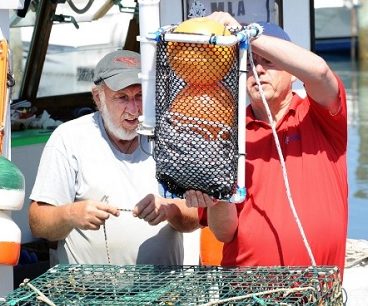
Ropes are latest flashpoint in tug of war over right whales
The lobster industry is willing to consider switching to weaker rope to protect the endangered right whale from deadly entanglements, but whale defenders say that doesn’t go far enough to help a species that can’t bear even one more death. A team of scientists, regulators, animal rights groups and fishermen met this week in Providence to review proposals,,, The team is advising the National Marine Fisheries Service on how to prevent whales from getting entangled in fishing gear as they migrate, feed and mate as they travel back and forth along the East Coast of the United States and Canada. >click to read<11:54

NOAA Scientists Admit Finding In Recent Right Whale Report Just A Hypothesis
Federal fishery regulators are taking back their claim that newer lobster fishing gear is harmful to North Atlantic right whales.,, They found a 2015 rule requiring less traps with stronger fishing line is making entanglements of right whales worse. However, the agency said that statement is actually not based on science. Patrice McCarron, executive director of the Maine Lobstermen’s Association, said the report is still flawed. >click to read<11:52

Lobster industry blasts proposed regulations intended to protect whales
Maine officials and members of the state’s lobster industry are blasting a new federal report on the endangered right whale, claiming it uses old science to unfairly target the fishery for restrictions.
The Maine Department of Marine Resources, the agency that regulates the $434 million lobster fishery, and the Maine Lobstermen’s Association, the trade group representing Maine’s 4,500 active commercial lobstermen, question the scientific merits of the report from the Northeast Fisheries Science Center, which was issued in advance of next week’s meeting of a federal right whale protection advisory team. “They’re painting a big target on the back of the Maine lobster industry, but the picture isn’t based on the best available science,” DMR Commissioner Patrick Keliher said Thursday. >click to read<09:34
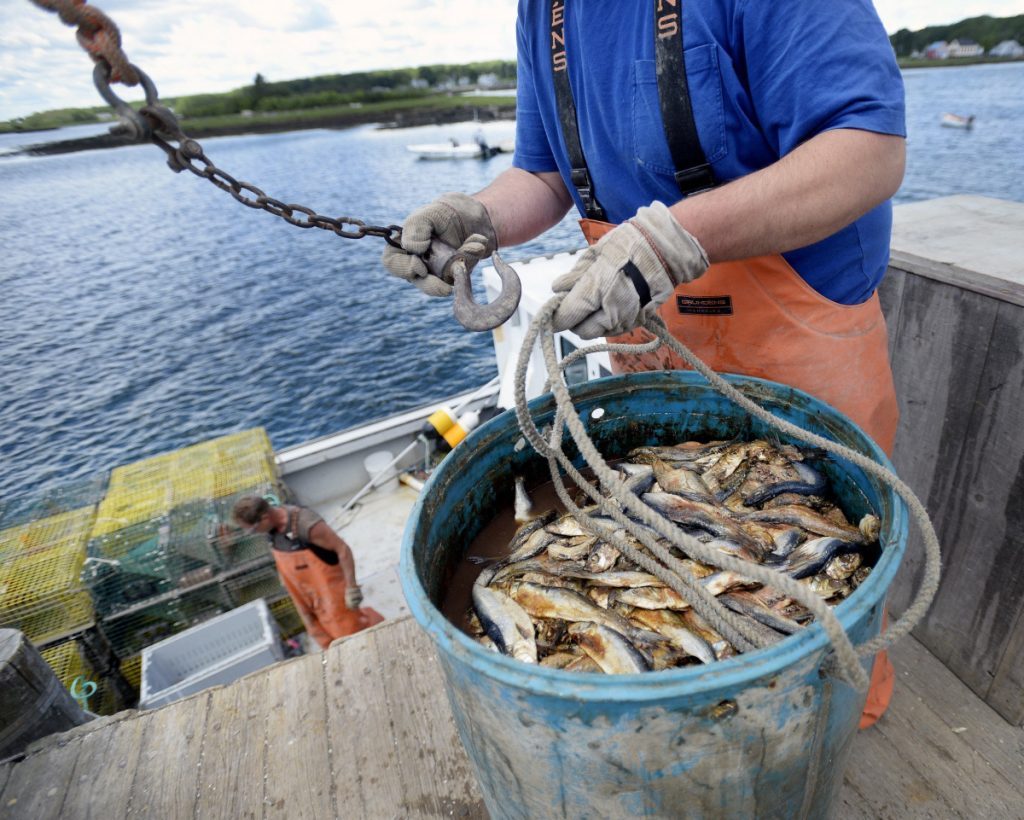
Maine: Pending bait shortage poses another threat to New England lobster industry
Regulators want to cap this year’s herring landings at last year’s levels, or 50,000 metric tons, and slash next year’s quota of the most popular lobster bait from 110,000 to 30,000 metric tons. They want to do this to offset record low numbers of newborn herring that are entering the fishery to replace those that are caught, eaten by other predators or die from natural causes. The 2019 quota could fall even lower if regulators adopt a separate proposal to leave more herring in the sea to feed the fish, birds and marine mammals that eat them, including Gulf of Maine species such as cunner, cod, seals, whales, puffins and terns. The New England Fishery Management Council could decide the issue as early as September. Eco-based Management. >click to read<10:51
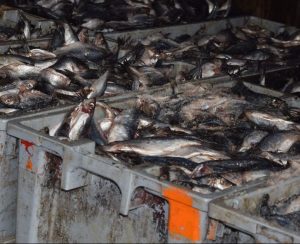
The cost of herring – Fishermen feeling bait price squeeze
“We made no money this spring,” said Bass Harbor fisherman Justin Sprague. The cost of operations for lobstering continues to increase while the boat price of lobster has hardly budged. The cost of herring, the preferred bait for most Maine lobsterman, has gone up especially sharply. “We don’t have any margin at this point,” Sprague said. “It’s frustrating, to say the least.” Bruce Colbeth manages the C.H. Rich lobster wharf in Bass Harbor. “By the time these guys pay for fuel, bait and stern men, there ain’t too much left for them,” he said. “I remember six years ago you could sell (herring) bait for $26 a bushel. Now it’s doubled.” >click to read<11:41

New England Senators Threaten Trade Action Against Canada Over Right Whale Protections
A group of New England senators is calling on the U.S. government to speed up an analysis of Canada’s efforts to protect the endangered North American right whale, and to consider trade action if Canada’s rules do not prove as strong as in the U.S.,, Now they’re calling on the National Oceanic and Atmospheric Administration to investigate whether fishermen in Canada are being held to similar standards. If not, they say, then NOAA should consider barring the import of Canadian seafood from the relevant fisheries. “It’s really a double-edged sword,” says Patrice McCarron, executive director of the Maine Lobstermen’s Association. >click to read>19:12
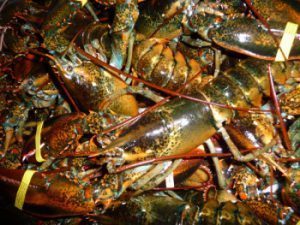
Maine lobster catch dips to lowest level in 6 years in ’17
The state that dominates the U.S. lobster haul saw the catch fall to its lowest level since 2011 last year, yet the industry is still strong and the crustaceans remain easily available to consumers, regulators said Friday. Maine fishermen caught a little more than 110.8 million pounds (50.3 million kilograms) of lobster last year, following a stretch of five consecutive years in which the state topped 120 million pounds (54 million kilograms) annually, the state Department of Marine Resources announced. Fishermen in Maine, who typically catch about 80 percent of America’s lobster, also made slightly less money. >click to read< 09:57
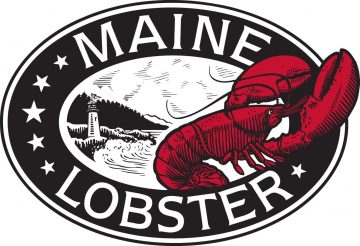
Lawmakers give Maine lobster promoters key win
A state lobster marketing group is likely to keep touting Maine’s most beloved seafood export in the wake of a key vote from a legislative committee. The Marine Resources Committee voted in favor of renewing the Maine Lobster Marketing Collaborative for three years on Wednesday. The collaborative needs the full Legislature’s approval to continue existing beyond this year. The collaborative promotes the Maine lobster brand in the media, in the restaurant business and among chefs, and it’s funded by fees paid by members of the state’s lobster industry,,, >click to read<10:13

Maine lobstermen’s conservation efforts an investment in the future
How many of you keep money in the bank? Savings accounts, money market accounts, certificates of deposit or investments — we all use different methods to ensure that we have something set aside for the future. Maine lobstermen have been doing just that for the past century, making sure that there will be lobsters in the Gulf of Maine for their children and grandchildren to harvest. In doing so, they have earned a worldwide reputation as leaders in stewardship of marine resources. >click to read< 10:19 
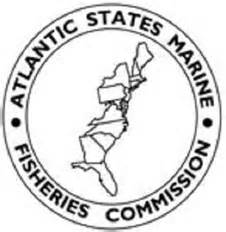
ASMFC to require Maine to collect catch reports from all lobstermen
An interstate fisheries commission voted Tuesday to require all licensed lobstermen in Maine to start filing catch reports within the next five years. Lobstermen in Maine, where currently only 10 percent of licensed lobstermen are required to file catch reports, overwhelmingly have been opposed to such a requirement. Other states, all of which have lobster fisheries smaller than Maine’s, already require 100 percent of active lobster harvesters to file daily catch summaries. Maine’s Department of Marine Resources also has opposed requiring all lobstermen to file reports. >click to read< 16:08
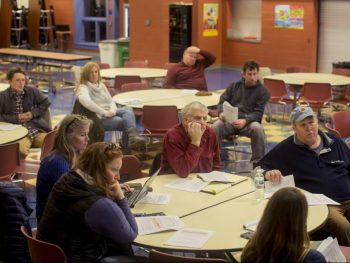
Lobstermen speak out against proposal to have Maine’s entire fleet report data
Maine doesn’t require all of its lobstermen to share their fishing data, and they say reporting even 10 percent of the country’s largest lobster fishery is enough to give state and federal regulators statistically valid data. That’s the argument advanced by lobstermen, the Maine Lobstermen’s Association and the state Department of Marine Resources against a proposal for 100 percent reporting, at a hearing held Wednesday by the Atlantic States Marine Fisheries Commission. >click here to read< 11:09

Maine lobstermen serve booming world market
From trade deals in Europe and China, to the price per pound customers pay at the dock for their nightly dinner, York is a microcosm for both the uber international and the uber local sides of the lobster industry. And local lobstermen serving both markets are just pleased to see the lobsters here are finally shedding their shells and are getting hungry, filling traps that up until now have been pretty light due to colder than usual ocean temperatures during June and early July.,,, Jeff White, president of the York Lobstermen’s Association, said this season is “more like 20 years ago. You never expected to get anything until the middle of July. Why is it different? I really don’t know. The lobsters know and they’re not telling. click here to read the story 09:10

The Maine Lobster Marketing Collaborative – Lobster marketing campaign draws criticism, converts
The collaborative has always been a controversial topic in lobster fishing circles. Other regional foods have promotional boards with far bigger budgets – California avocado, Georgia peaches, California almonds – and some fishermen say it’s long past time that Maine got serious about promoting its signature food. Others resent paying higher fishing license fees to underwrite the collaborative’s $2.2 million budget. click here to read the story 10:35
Controversial bill allowing secret tracking devices on lobster boats wins Maine Senate approval
![]() A compromise has been reached over a controversial bill that would allow the Department of Marine Resources to secretly place tracking devices on lobster boats. The measure is aimed at cracking down on violators of lobstering laws. The Maine Lobstermen’s Union had been strongly opposed to the bill, saying it gave the commissioner too much authority by allowing him to covertly track boats. But after a discussion with the commissioner this morning the union now backs the bill. “So we have a lot more people fishing offshore, much more difficult to catch violators offshore,” said Patrice McCarron of the Maine Lobstermen’s Association. McCarron said if allowing investigators to covertly place tracking devices on boats of suspected cheaters leads to more arrests, the industry will be better off. Video, click here to read the story 11:30
A compromise has been reached over a controversial bill that would allow the Department of Marine Resources to secretly place tracking devices on lobster boats. The measure is aimed at cracking down on violators of lobstering laws. The Maine Lobstermen’s Union had been strongly opposed to the bill, saying it gave the commissioner too much authority by allowing him to covertly track boats. But after a discussion with the commissioner this morning the union now backs the bill. “So we have a lot more people fishing offshore, much more difficult to catch violators offshore,” said Patrice McCarron of the Maine Lobstermen’s Association. McCarron said if allowing investigators to covertly place tracking devices on boats of suspected cheaters leads to more arrests, the industry will be better off. Video, click here to read the story 11:30
Maine Lobstermen Support GPS Tracking of Lawbreakers Fishing Vessels – Lobstermen from Swans Island are fed up with the bad behavior of fellow fishermen who violate regulations within the states most valuable fishery. Video, click here to read the story 12:02


































